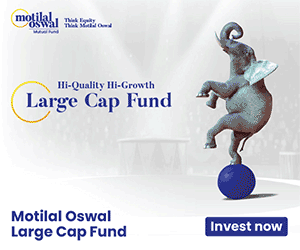Should you invest in Mutual Funds through a Financial Adviser or through Direct Plans

A lot has been written in financial blogs about Direct Plans. Many financial experts argue in favour of Direct Plans, especially about the fact that the expense ratio is lower in Direct Plans and that returns are a little higher. They argue that the yield could be 0.5 - 1.25% higher per year for direct plans. However, we should take a more objective approach to investments. What if the return of your direct plan is 3% less than the return of a better performing regular plan? Do direct plans still make more investment sense? Let us take the example of Equity Linked Savings Schemes (ELSS). If you invest in the direct plan of an average ELSS performer, you will get a 3 years annualized return of around 14 – 15%. But, if you invest in a regular plan of a top performing ELSS, you will get above 20% annualized returns. What does it means in terms of absolute returns? If you invest in a Rs 3000 monthly SIP in a regular plan of top performing ELSS, your returns will be nearly Rs 4.7 lacs higher over 10 years, than what you will get by investing the same amount in a monthly SIP in a direct plan of an average ELSS fund. Do you want to save on commissions, or do you want to get higher returns? Those who argue in favour of direct plans, ignore one fundamental fact. There is a big performance differential between top performers and bottom performers (please read our article, Choose Best Mutual Funds wisely: A big performance differential between top and bottom performers). It takes considerable expertise and effort to identify top performing funds. Good financial advisers have the expertise and resources to identify funds that have excellent track record and the potential to give high future returns. Further, identifying top performing funds is not enough. A fund may perform very well for the next 2 to 3 years, but what if the time horizon of the investor is longer? Very few funds can give exceptionally high returns over a 10 year time period, across both bull and bear market cycles. There are several considerations that go into selecting the best fund for your investment needs
Choosing the right fund is not easy
Mutual fund investors in India have a large number of options to choose from. There are hundreds of schemes from a large number of fund houses across a variety of categories, which makes it a difficult task for the investors to choose a fund. The first step of an investment process is to determine your risk tolerance level. Determining risk tolerance is not easy. There are several methods to determine risk tolerance of an investor, based on age of the investor, investment horizon, volatility or loss appetite etc (please read our article, Measuring Risk Tolerance of Investors). However, it is important to note that, these rules are general guidelines and none of these methods on a standalone basis is a comprehensive measure of risk tolerance. A financial adviser can help the investor with comprehensive assessment of the risk tolerance based on the evaluation of the following.
- Income and Expenses of the investor
- Liquid (cash savings) of the investor
- Short term financial goals
- Insurance cover (both life insurance and health insurance) of the investor
Once the investor has determined his or her risk profiles, investment horizons and investment objectives, he or she should choose the category of fund(s) they want to invest in, depending on their risk profile and investment objective. Again this is not as easy as it sounds. Not all of us invest in mutual funds only with the objective of retirement planning. We may want to invest to build a corpus for making a down payment for a property. Yes, most investors know that equity funds can give 15 – 20% over 10 years or more. But what if your horizon is just 3 to 5 years? There are no written rules about which funds or categories of funds will give the highest returns over a 3 to 5 year period, 5 to 7 year period, 10 to 12 year period etc. A good financial adviser can recommend suitable options for you, depending on the equity market conditions, interest rate outlook, fund manager’s style and track record - It is both, an art and science. The experience of a good financial adviser is extremely valuable in helping you select the right fund. Different mutual fund categories have different risk return characteristics. But even within a specific category, investors should choose a fund that gives the best returns on investment.
How to identify a fund that will give good returns in the future
If you have chosen to invest in the direct plan of a mutual fund, on what basis have you done the fund selection? Did you look at historical returns? Did you look at short term performance or long term performance? Paying too much importance to short term performance is risky, when selecting funds for investments. Please read our article, Do not go by short term performance when selecting a mutual fund. The last one year performance is not a reliable measure of a fund’s future performance potential. On the other hand, very long term performance is also not a reliable indicator. There are funds which gave very high returns from 2004 to 2007, riding on the bull market during that period. But their performance post the downturn of 2008, has not been satisfactory relative to top performing peers in the same category. However, the 10 year trailing returns will still look good on account of the strong performance in 2004 to 2007 period. But can the historical 10 year returns be sustained in the future? It may not be sustained over the next 10 years. One needs to analyze the reasons for recent underperformance. Is it because of exit of key personnel, portfolio philosophy, sector dynamics etc? We are not suggesting that you should not look at historical returns. Historical performance is very important in determining potential of a fund’s future performance. But, there are several other factors involved that can determine a fund’s future performance potential. These are fund manager’s track record, consistency of returns, portfolio construction etc. Good financial advisers have the expertise and research resources to identify funds that have the potential to give high future returns.
Time Management and Productivity
A good financial adviser will help you manage your investments in a more productive way. A financial adviser will help you with the application and KYC process. This will help you use your time more productively. We invest in various mutual fund and insurance schemes throughout our working lives over 20 – 30 years. Managing the investment documents and keeping track of investments can become an onerous task. There are times, when we change our residential address or change our bank account. If the Asset Management Company is not informed, then the investor will surely face problems when redeeming their investments. A financial adviser takes care of all these administrative processes and helps the investor with filing of all documents.
Good financial advisers also help their clients manage their investment portfolio in a more efficient and effective manner, by providing consolidated investment report both on a periodic or ad hoc basis. On demand or at a regular frequency, your financial adviser should be able to give you different type of reports like transaction report, dividend report, absolute return report, annualized investment performance report etc. Your financial adviser can work with you to develop customized report formats, based on what you need. You may not have the time to read a detailed report every month. But if you need to drill-down then your financial adviser can provide you all the details up to a transaction level. Some financial adviser can provide you online access to your investment portfolio. You can generate these reports yourself, whenever you need.
Documents for Income Tax related matters
Your chartered accountant may ask you to provide a capital gains report for payment of advance taxes or filing your income tax returns. Your financial adviser can provide short term and long term capital gains report, whenever you need them. If you face an enquiry from Income Tax Department, it is useful to have historical report of all past transactions. Your financial adviser will maintain a report containing all the historical transactions along with the backup documentation. Doing this yourself not only is time consuming, but requires you to follow practises of good book keeping.
Conclusion
Investing in direct plans, simply with a view of saving commissions and getting slightly higher yields, is not the right approach to investing. You should consider the various factors discussed in this article. If you have the expertise in selecting funds and the bandwidth to devote sufficient time and attention to the various aspects of investment management, you can consider investing in direct plans. But as with investments, you should take a long term view, as to how you want to manage your investments.
Queries
-
What is the benefit of mutual fund STP
Aug 29, 2019
-
How much to invest to meet target amount of Rs 2 Crores
Aug 26, 2019
-
Can I achieve my financial goals with my current mutual fund investments
Aug 24, 2019
-
Can you tell me return of various indices
Aug 19, 2019
-
What would be the post tax return on different investments
Aug 18, 2019
-
Which Principal Mutual Fund scheme will be suitable for my retirement corpus
Aug 16, 2019
-
What is the minimum holding period for availing NCD interest
Aug 4, 2019
Top Performing Mutual Funds
Recommended Reading
Fund News
-
Motilal Oswal Mutual Fund launches Motilal Oswal Infrastructure Fund
Apr 23, 2025 by Advisorkhoj Team
-
Groww Mutual Fund launches Groww Gilt Fund
Apr 23, 2025 by Advisorkhoj Team
-
Bajaj Finserv Mutual Fund launches Bajaj Finserv Nifty Next 50 Index Fund
Apr 22, 2025 by Advisorkhoj Team
-
Mirae Asset Investment Managers (India) Pvt. Ltd. IFSC branch launches Mirae Asset Global Allocation Fund IFSC at Gift City
Apr 21, 2025 by Mirae Asset Mutual Fund
-
Axis Mutual Fund joins ONDC Network to Expand Access to Mutual Fund Investments
Apr 18, 2025 by Axis Mutual Fund













